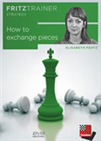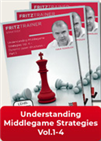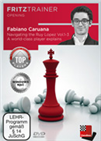Kiolbasa-led Poland beats India
As Gukesh’s winning streak came to an end in the India 2 v Azerbaijan match of the open section, Polish WIM Oliwia Kiolbasa scored her ninth consecutive victory in the women’s tournament. Kiolbasa’s win on Sunday was particularly important, as she scored a full point in the one decisive game of the crucial match against the former leaders from India.
Poland’s victory over the rating favourites, who were undefeated until round 8, dramatically changed the scenario atop the tournament standings, as four teams are now sharing the lead with 15 match points. The other two co-leaders are Georgia and Kazakhstan.
Kiolbasa defeated the in-form Vaishali, who entered the round with an undefeated 6½/8 score. A strategic battle saw the contenders entering a rook endgame right after the time control. The Polish representative had an extra pawn on the queenside in a position that seemed likely to end in a draw.
However, the 21-year-old from Chennai faltered on move 57.
White’s 57.h4 posed a difficult question to her opponent. Vaishali was well-aware of how critical this decision was, as she spent over 12 minutes reflecting on how to proceed, leaving both players with less than 10 minutes on their clocks.
Grabbing the pawn with 57...gxh4 is the correct response, but it allows White to make progress with her king. Perhaps intending to keep as much control as possible in the pawn-down position, Vaishali went for 57...Kg6, allowing 58.h5+ Kf7 (58...Kh7 was better) 59.f4 gxf4 60.gxf4 f5
Black’s pieces are now fully restricted. As Kiolbasa proficiently demonstrated, all White needs to do to win the game is to carefully transfer her king to g5 and push the h-pawn at the right moment. Thus, Black cannot defend against the two weaknesses on opposite flanks. Vaishali kept playing until move 80, when she threw in the towel.
 Learn to master the right exchange! Let the German WGM Elisabeth Pähtz show you how to gain a strategic winning position by exchanging pieces of equal value or to safely convert material advantage into a win.
Learn to master the right exchange! Let the German WGM Elisabeth Pähtz show you how to gain a strategic winning position by exchanging pieces of equal value or to safely convert material advantage into a win.
All remaining encounters in the match had finished in draws by then, with Harika Dronavalli failing to make the most of what could have been a deadly kingside attack against the experienced Monika Socko.
Kiolbasa, aged 22, has been making steady progress since August last year, as she gained amost 100 rating points in the last twelve months. At the 2021 European Individual Championship in Romania, she entered as the 43rd seed and finished in 3rd place with a remarkable 8/11 score. Back then, she defeated Georgian IM Lela Javakhishvili with the black pieces, whom she is set to face in the all-important round-10 match against Georgia.

A 4 versus 3 (still) drawn rook endgame on the board — Oliwia Kiolbasa facing Vaishali Rameshbabu | Photo: Lennart Ootes
Round 9 saw Georgia drawing Ukraine and Kazakhstan getting the better of Bulgaria. Zhansaya Abdumalik collected her fifth win of the event, as she inflicted Nurgyul Salimova’s first loss of the event.
In round 10, Abdumalik is paired up against the highest-rated player in the field, India’s Humpy Koneru. The locals are likely to go all out for the win, as a double-gold is still within reach for the enthusiastic host country.

Kazakhstan’s Zhansaya Abdumalik and Xeniya Balabayeva | Photo: Lennart Ootes
Poland v India / Georgia v Ukraine / Kazakhstan v Bulgaria
Select an entry from the list to switch between games
Uzbekistan takes down Armenia
Quietly, the youthful Uzbek squad has grabbed the sole lead in the open tournament. Wins on boards 3 and 4 in their match against Armenia proved once again how important it is to have strikers all along the lineup — which has also been a virtue of the Armenian team. In fact, all five players from the Uzbek team have 2700+ tournament rating performances.
Jakhongir Vakhidov, the fourth board, is the top performer in the team, with a 2821 TPR. In round 9, he defeated none other than Robert Hovhannisyan, who had been doing the heavy lifting for Armenia up to that point.
 In this video series, it's all about understanding middlegame strategies better. Pawn structures, manoeuvres and concepts are being shown through model games. New: now also available as stream!
In this video series, it's all about understanding middlegame strategies better. Pawn structures, manoeuvres and concepts are being shown through model games. New: now also available as stream!The contenders reached this complex rook endgame in which White needs to be extremely precise to deal with Black’s passer on the a-file. The cold-blooded engines show that 50.Rh6+ here is the way to keep the delicate balance, while Hovhannisyan’s 50.Rh4, preparing to double on the a-file, turned out to be the wrong plan.
As it is usually the case in team events, especially at this point of maximum tension, the Armenian continued playing until move 75, as he forced his opponent to show the proper technique in a queen versus rook ending.
Round 10 will see 16-year-old Gukesh playing white against 17-year-old Abdusattorov in the most anticipated confrontation of the Olympiad — a matchup we are likely to see in top events for years to come!

Ivan Sokolov is Uzbekistan’s team captain — here he is heading to congratulate a satisfied Jakhongir Vakhidov on his crucial victory | Photo: Lennart Ootes
Uzbekistan v Armenia
Newfound hopes for the chasers
Much like in the women’s tournament, the loss of the sole leader has risen the hopes of the chasing teams in the open. India 2 and Armenia stand a point behind Uzbekistan, while no fewer than seven teams stand a point further back and have outside chances of clinching gold, and very real chances of reaching the podium.
The United States, India 1, Azerbaijan and the Netherlands are the highest-rated squads in this group, while Iran, Turkey and Serbia are the over-performing teams in the pack.
Perhaps the team that is less happy to belong to this group is Azerbaijan. In round 9, the sixth seeds faced India 2, and they were inches away from scoring a crucial win. Shakhriyar Mamedyarov stopped Gukesh’s winning streak with a 34-move draw; Rauf Mamedov split the point with the ever-dangerous Nihal Sarin; while Nijat Abasov took down Raunak Sadhwani on board 4.
These results left everything in the hands of Vasif Durarbayli, who had the black pieces in a wild tactical struggle against Praggnanandhaa.
White is two pawns up, but his queen makes a poor impression on h1. Pragg had, in fact, already missed a chance to make the most of what the engines evaluated as a +6 advantage earlier in the game — but finding the correct moves in such wild tactical battles is all but impossible for human beings, especially while under so much pressure.
Here, it was the Azerbaijani’s turn to falter, as he erred by playing 58...Kh7 instead of 58...Kf7. Such small details matter when the position is about to break open, with potential attacks for both sides!
According to the engines, the position was now drawn, but a second mistake by Durarbayli allowed Pragg to take over — there followed 59.Rxg4 d4 60.Rg6 Qe7 (the decisive mistake).
Black missed the good-looking 61.Bd3, leaving the queen en prise but setting up a deadly discovered check, and there is no defence for Black. (Instead of 60...Qe7, the tricky 60...Nd2 was the most resilient resource for the Azerbaijani).
 The Ruy Lopez is one of the oldest openings which continues to enjoy high popularity from club level to the absolute world top. In this video series, American super GM Fabiano Caruana, talking to IM Oliver Reeh, presents a complete repertoire for White.
The Ruy Lopez is one of the oldest openings which continues to enjoy high popularity from club level to the absolute world top. In this video series, American super GM Fabiano Caruana, talking to IM Oliver Reeh, presents a complete repertoire for White.Durarbayli resigned five moves later.

The final stage of a highly dramatic game | Photo: Lennart Ootes
In the remaining key matches of the round, the Netherlands signed four draws with Iran; the United States defeated the 25th seeds from Greece despite Levon Aronian losing to Nikolaos Theodorou on board 2; India 1 got the better of Brazil, with wins by Arjun Erigaisi and Krishnan Sasikiran; and Germany only drew the 30th seeds from Lithuania, as Paulius Pultinevicius and Valery Kazakouski defeated Rasmus Svane and Dmitrij Kollars on boards 3 and 4!
The United States will face Turkey in round 10, when Aronian will not be playing after a painful defeat. Meanwhile, Azerbaijan versus Armenia and Iran versus India 1 are make-or-break matches, as only two rounds are left to go in Chennai.

Greece’s Nikolaos Theodorou upset Levon Aronian | Photo: Lennart Ootes

Fans at the entrance of the playing hall — chess has taken over India! | Photo: Lennart Ootes
All the games from matches mentioned in this section
Round 10 pairings - Open
 This DVD allows you to learn from the example of one of the best players in the history of chess and from the explanations of the authors (Pelletier, Marin, Müller and Reeh) how to successfully organise your games strategically, consequently how to keep y
This DVD allows you to learn from the example of one of the best players in the history of chess and from the explanations of the authors (Pelletier, Marin, Müller and Reeh) how to successfully organise your games strategically, consequently how to keep y
| 1 |
11 |
|
IND2 |
India 2 *) |
27½ |
15 |
|
: |
|
16 |
28½ |
Uzbekistan |
UZB |
|
14 |
| 2 |
6 |
|
AZE |
Azerbaijan |
24 |
14 |
|
: |
|
15 |
23 |
Armenia |
ARM |
|
12 |
| 3 |
1 |
|
USA |
United States |
21½ |
14 |
|
: |
|
14 |
25½ |
Turkey |
TUR |
|
21 |
| 4 |
13 |
|
IRI |
Iran |
24 |
14 |
|
: |
|
14 |
24½ |
India |
IND |
|
2 |
| 5 |
23 |
|
SRB |
Serbia |
23 |
14 |
|
: |
|
14 |
25½ |
Netherlands |
NED |
|
7 |
| 6 |
4 |
|
ESP |
Spain |
24½ |
13 |
|
: |
|
13 |
26 |
Czech Republic |
CZE |
|
18 |
| 7 |
19 |
|
HUN |
Hungary |
24 |
13 |
|
: |
|
13 |
24 |
Ukraine |
UKR |
|
8 |
| 8 |
9 |
|
GER |
Germany |
22½ |
13 |
|
: |
|
13 |
24½ |
Israel |
ISR |
|
22 |
| 9 |
10 |
|
ENG |
England |
23½ |
13 |
|
: |
|
13 |
24 |
Italy |
ITA |
|
26 |
| 10 |
15 |
|
FRA |
France |
24 |
13 |
|
: |
|
13 |
22 |
Lithuania |
LTU |
|
35 |
| 11 |
3 |
|
NOR |
Norway |
23 |
12 |
|
: |
|
13 |
23½ |
Moldova |
MDA |
|
48 |
| 12 |
5 |
|
POL |
Poland |
22 |
12 |
|
: |
|
12 |
20½ |
Sweden |
SWE |
|
31 |
| 13 |
16 |
|
IND3 |
India 3 |
22 |
12 |
|
: |
|
12 |
21 |
Slovakia |
SVK |
|
34 |
| 14 |
17 |
|
CRO |
Croatia |
23 |
12 |
|
: |
|
12 |
22½ |
Kazakhstan |
KAZ |
|
40 |
| 15 |
37 |
|
PER |
Peru |
20½ |
12 |
|
: |
|
12 |
25½ |
Georgia |
GEO |
|
24 |
...96 boards
Round 10 pairings - Women
| 1 |
1 |
|
IND |
India *) |
24½ |
15 |
|
: |
|
15 |
25 |
Kazakhstan |
KAZ |
|
10 |
| 2 |
3 |
|
GEO |
Georgia |
24 |
15 |
|
: |
|
15 |
27 |
Poland |
POL |
|
4 |
| 3 |
8 |
|
GER |
Germany |
25 |
14 |
|
: |
|
14 |
25 |
Ukraine |
UKR |
|
2 |
| 4 |
9 |
|
ARM |
Armenia |
26 |
14 |
|
: |
|
14 |
24½ |
Azerbaijan |
AZE |
|
6 |
| 5 |
7 |
|
USA |
United States |
25½ |
13 |
|
: |
|
14 |
26 |
Indonesia |
INA |
|
32 |
| 6 |
17 |
|
NED |
Netherlands |
21½ |
13 |
|
: |
|
13 |
25 |
India 2 |
IND2 |
|
11 |
| 7 |
14 |
|
CUB |
Cuba |
22 |
13 |
|
: |
|
13 |
20 |
Slovakia |
SVK |
|
22 |
| 8 |
28 |
|
MGL |
Mongolia |
24 |
13 |
|
: |
|
13 |
24½ |
Bulgaria |
BUL |
|
15 |
| 9 |
16 |
|
IND3 |
India 3 |
22½ |
13 |
|
: |
|
13 |
24 |
Sweden |
SWE |
|
34 |
| 10 |
12 |
|
HUN |
Hungary |
22½ |
12 |
|
: |
|
12 |
23½ |
Italy |
ITA |
|
25 |
| 11 |
13 |
|
ESP |
Spain |
25 |
12 |
|
: |
|
12 |
23½ |
Peru |
PER |
|
31 |
| 12 |
18 |
|
SRB |
Serbia |
22½ |
12 |
|
: |
|
12 |
23 |
Iran |
IRI |
|
38 |
| 13 |
19 |
|
ISR |
Israel |
22½ |
12 |
|
: |
|
12 |
21 |
Argentina |
ARG |
|
40 |
| 14 |
20 |
|
ROU |
Romania |
21 |
12 |
|
: |
|
12 |
19½ |
Croatia |
CRO |
|
43 |
| 15 |
21 |
|
ENG |
England |
20½ |
12 |
|
: |
|
12 |
24½ |
Canada |
CAN |
|
56 |
...78 boards
*) This team is assigned to a fixed board.
Links
























